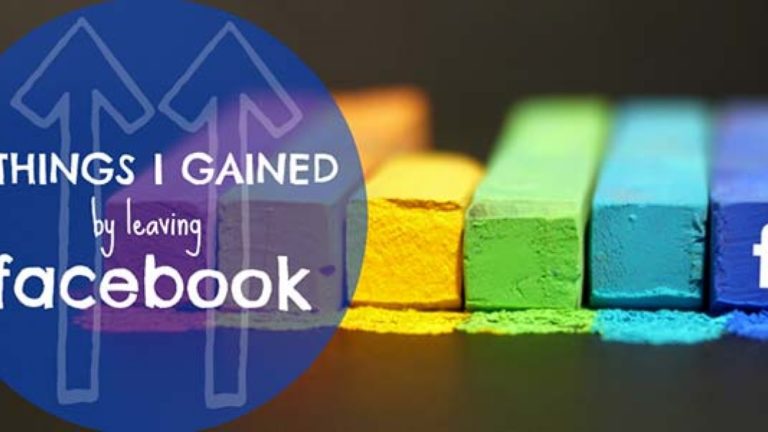7 Things I Gained by Leaving Facebook

I recently decided to take a hiatus from Facebook. I realized I was addicted, and the information overload started to overwhelm me. When my friends ask me why I deactivated my Facebook account, I smile and say that I needed a break from being continuously inundated with status updates.
A few months earlier when the idea first cropped up to deactivate my account, I resisted it for fear of being left out. I thought I’d miss out on important information; now I realize I could do without it completely. I decided to take more control of what I see or read.
Instead of being flooded with unwanted information, I now filter what I read. I only read columns in the newspaper on topics which I need for my teaching, like economics and finance.
Here are the seven things I gained from breaking free from the grips of Facebook:
- I spend more meaningful time with my family and friends instead of constantly checking updates.
- I get to do the things I’ve always put off because I “didn’t have time.” The time I used scrolling through Facebook is now better used for things I enjoy doing like writing, meditation and yoga.
- I feel calmer, more centered and peaceful. The information overload was affecting me at a subconscious level.
- I have control over my time now. As a result, I feel more empowered, energized and responsible. Every moment counts.
- When I find myself with nothing to do, I sit in silence and take a moment for contemplative reflection. This gives me a fresh perspective.
- I’m more mindful. Breaking free from a digital addiction made me more aware of my mindless actions that don’t serve any real purpose. Every time the urge of checking Facebook arises, I simply watch the thought and let it go. On a few occasions, I’ve given in to that urge and the feeling isn’t great. I know the power is within me to make a lasting change that will aid me in living the life I want to live.
- I experienced a sense of liberation. It’s as if the dark clouds lifted and the mental noise went silent. I dance and laugh more now. I get to stop and marvel at nature’s work. I started noticing the beauty around me instead of looking down at my phone. Inspiration comes to me in ways I’ve never imagined.
New Tool May Help Solve the Teen Mental Health Crisis

As rates of mental health issues in teens reach epidemic proportions, a new intervention that reframes the way they view stressors shows great promise in improving both psychological and physiological health.
Given the exponentially growing mental health crisis among teens, the American Academy of Pediatrics, along with several other medical organizations, recently declared a national emergency in children’s mental health.
While many societal factors are being implicated, researchers at the University of Rochester recently conducted a study that focused on the ordinary, day-to-day stresses that teens face, such as how they’re perceived by others.
Psychologist Jeremy Jamieson, who headed up the study, told the University of Rochester News Center, “For adolescents, social hierarchy, social comparisons, and peer evaluations have always been important, but now it’s there all the time… people are receiving a daily stream of likes, dislikes, and comments via social media, which makes for a constant state of social evaluation. it’s one of the most damaging things we’ve seen for adolescents.”
While these “social-evaluative stressors” can lead directly to depression and anxiety, it is how teens deal with them, experts say, that determines the psychological outcome.
While conventional thinking equates stress with something “bad,” Jamieson says, “stress is a normal and even defining feature of adolescence… for those of us who study processes and psychophysiology, stress is just any demand for change — it’s neither good nor bad.”






